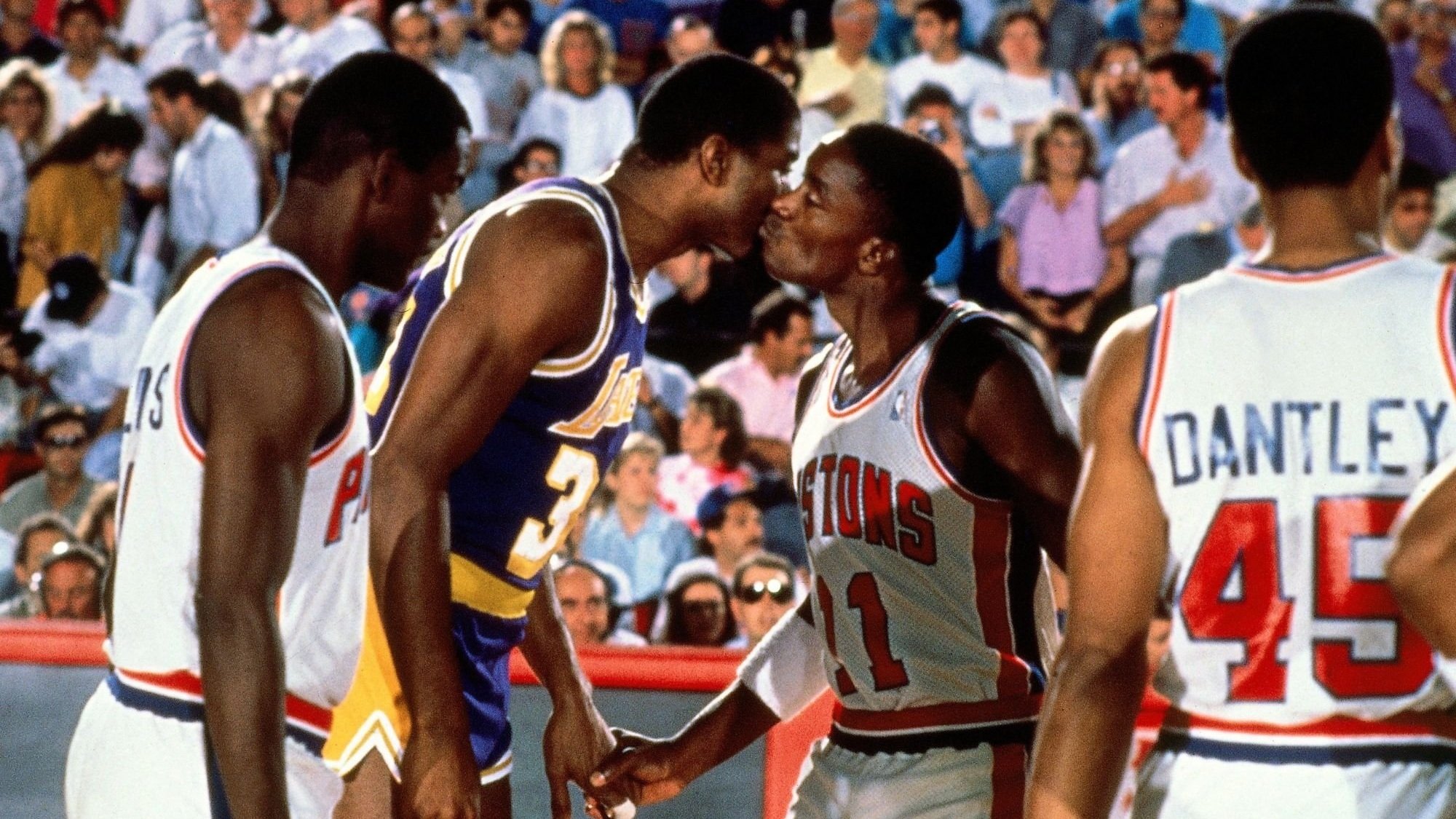An On-Court Kiss: Magic, Isiah and the Politics of Black Masculinity in the NBA
As their teammates traded pre-game handshakes at center court, Johnson, an auto plant worker’s son from Lansing, Michigan, and Thomas, a native of Chicago’s hardscrabble West Side, stepped toward one another.
The best friends shook hands. Then they kissed one another on the cheek.






